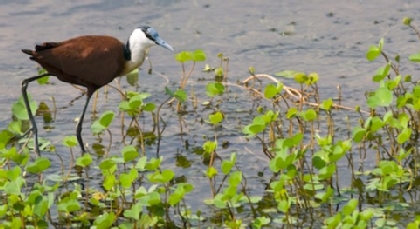Page 67 • (2,170 results in 0.056 seconds)
-
Grant opportunities for education research Posted by: hassonja / December 13, 2017 December 13, 2017 Spencer Foundation invites proposals for education research projectsDeadline: February 1, 2018 Award: up to $50,000 The Small Research Grants program is intended to support education research projects with budgets of $50,000 or less. In keeping with the Spencer Foundation’s mission, this program aims to fund academic work that will contribute to the improvement of education, broadly conceived
-

wider worlds of business, economics, and technology. For your program, Marc, there were faculty from History, Sociology, Economics, and Anthropology involved!” Michael: “Matt, can you tell readers how you got started with your business history project?” Matt: “Sure—It began with my shared interests in History and Economics. In this case, you were my faculty adviser, Dr. Halvorson, so when you described your current research on the early history of personal computing, I was intrigued. The topic that
-
Free Science Career Fair Posted by: nicolacs / April 11, 2023 April 11, 2023 The Foss Waterway Seaport is hosting a Science Career Expo on Thursday, May 18th, 2023 from 4-8pm. Participating organizations will have internship, volunteer or early career opportunities for those interested in science, technology and education. This event is free to all attendees. The Seaport is located at 705 Dock St. Tacoma. Carpooling is highly encouraged. Find more information here: https
-
, because as a little boy all he wanted to do was join the French Nazi Milices because all his friends would play by pretending to be the soldiers. By 1942, his family was arrested. They went to the French work camp Riversaltes, where his father would remain. Herschkowitz and his mother would be sent to a village in the mountains. In 1943, the French began offering to send Riversaltes prisoners to Auschwitz, portraying it as a place where they would get food and shelter. His father did not trust their
-
Greg Youtz: Composing for the cannery – of boxcars, rhinos, and grapes Posted by: Mandi LeCompte / April 1, 2013 April 1, 2013 1973, a 17-year-old Gregory Youtz departed from Sea-Tac International Airport and landed in France. Meritoriously skipping the third grade, the young composer had afforded himself the luxury of a year in limbo – graduating high school a year early and giving himself time to explore before college. “My music is essentially dramatic, it’s story telling. Because I’ve spent
-

musician I was well aware of the fine choral tradition at Lutheran colleges around the country. I remember seeing the Choir of the West at a National ACDA Convention in the early 80s and I was impressed. I had been in the Southwest for long enough and an opportunity came up to teach at PLU. The prospect of moving into a choral position at a Lutheran college located in a completely different, beautiful part of the country was very appealing to me. Aside from marrying my wife, Patti, it was the best move
-
students are in completing it. Kakar talks about “milestones” – setting up enough successes early in the year, so that they are able to reach their project goal. All CSCE capstone projects take place over the entire academic year – professors like to get the students thinking about it during their junior year. Any project is going to need many milestones – and a mentor like Kakar to offer support, insight and an occasional whip crack. Even so, there will be enough all-nighters in the project room
-
and I do in our experiments actually bears many parallels to cooking. By varying the amounts or types of ingredients, the order we add them to the pot, and the time and temperature we heat or cool them, we work to eventually perfect the finished dish – the target compound. Safety goggles aren’t powerful enough to actually let us see compounds we make. And, unlike the chemists of the early 1900s, we don’t taste our products in the lab anymore, either. We must use special instruments to help us “see
-

astounding and threatening. From there we headed to Red Chili camp to be welcomed by tame warthogs and cold bottles of Fanta, which is by far the best beverage to have on hot afternoons anywhere in Uganda. Several warthogs onsite were raised by the innkeepers and are quite fearless. At one point in time I was even nuzzled by one. The next day, after a delicious meal and a nice sleep shrouded under a mosquito net we headed bright and early, 6:15 to be exact, into the savanna of Murchison Falls. Hasan shot
-

Rieke Science Center and Morken Center By Matthew Salzano ’18PLU Marketing & Communications TACOMA, Wash. (March 20, 2015)—Just as spring springs, a new building has begun to peek out from the soil in lower campus: Pacific Lutheran University’s new greenhouse is starting to grow.The 1,700-square-foot, stand-alone Carol Sheffels Quigg Greenhouse is expected to open early to mid-August, with a formal dedication in September 2015. “It’s going to be a wonderful addition to the biology program at PLU by
Do you have any feedback for us? If so, feel free to use our Feedback Form.


